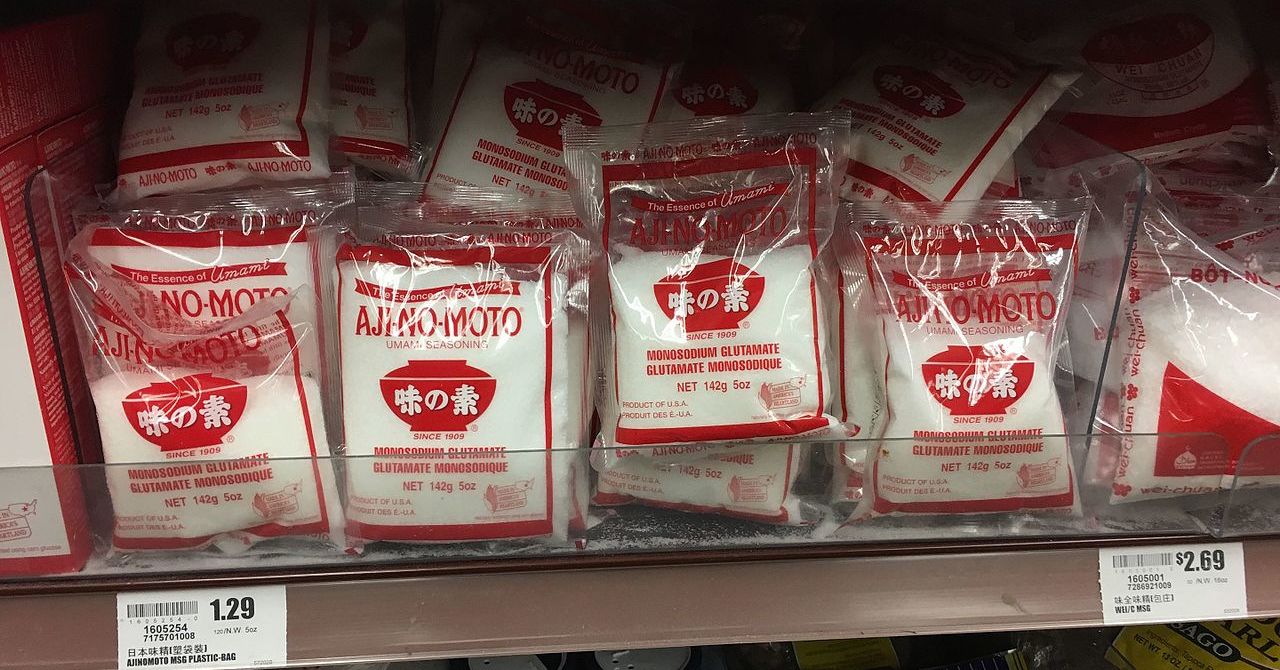It is widely believed that a popular flavor enhancer can lead to various unpleasant sensations: from rapid heartbeat to general weakness of the body. We checked whether this opinion is justified.
Monosodium glutamate is one of the most famous and discussed food additives. Many people do not see anything wrong with this flavor enhancer, others try to avoid it in every possible way. According to the International Food Information Council, about 40% of all Americans refuse from buying in a supermarket if the product contains monosodium glutamate. However, concerns about the substance are not a purely American phenomenon. For example, in 2013, State Duma deputies from the LDPR offered ban food manufacturers from using monosodium glutamate. The legislators explained their initiative “by the dominance of [this substance] in food and the negative impact on the health of the nation.”
The discussion about the possible harm of monosodium glutamate began several decades ago. In 1968, the American scientific journal The New England Journal of Medicine published published a letter by Professor Robert Ho Man Kwok entitled “The Chinese Restaurant Syndrome.” The scientist reported that every time after visiting such an establishment he began to feel unwell. Ho Man Kwok suggested that this may be due to one of the ingredients characteristic of Chinese cuisine: soy sauce, cooking wine (special wine, which is not produced for drinking, but exclusively for cooking) or monosodium glutamate, but I could not establish the exact reason, inviting my colleagues to discuss. Coming soon to discussion joined and journalists, choosing glutamate as the object of their publications (probably due to the incomprehensible “chemical” name).
Half a century later, researcher Jennifer Lemesurier joined the discussion. Not being a doctor or biologist, she wondered: how did such a widespread belief grow from one letter? IN article In 2017, Lemesurier came to the conclusion that the idea spread successfully due to the fact that it fell on fertile soil - in those years, racist prejudice and the humor associated with it were ubiquitous. She was unable to communicate with Professor Ho Man Kwok himself - he died three years before publication. In 2018, Lemesurier received a voicemail from a man named Howard Steele. He said that in 1968 he bet with a friend that he could write a text that would be published in a scientific journal. Steele allegedly composed the letter under the fictitious name Robert Ho Man Kwok, and when he realized that the situation was getting out of control, he tried to print a retraction in the same magazine, but the editor refused to do so. True, Steele soon died, and his daughter toldthat my father was very fond of such pranks.
Monosodium glutamate is a salt of one of the amino acids that make up all proteins. This salt was first isolated in 1908 by Tokyo University professor Kikunae Ikeda. He also found out that monosodium glutamate is responsible for umami - the fifth taste, which, along with sweet, sour, salty and bitter, is recognized by receptors in the human mouth. This substance contained in many familiar products - for example, tomatoes, mushrooms and cheese.
Many international and national food organizations do not see anything wrong with MSG. World Health Organization refers This salt is considered a food additive and does not provide recommendations for maximum permissible dosages. US Food and Drug Administration believes adding MSG to food is “generally recognized as safe” and emphasizes: “Although many people consider themselves sensitive to MSG, in studies involving such people... scientists have not been able to observe relevant reactions.” A study conducted by the Federation of American Societies for Experimental Biology, showed: Short-term sickness may occur in some people if they eat at least 3 g of MSG on an empty stomach. At the same time, as biologists emphasize, a typical serving of food contains no more than 0.5 g.
In 1993, scientists from the University of Western Sydney held An experiment was conducted on 71 volunteers to characterize the possible effects of monosodium glutamate on human well-being. The experts concluded that their study "demonstrated no significant adverse effects from high levels of MSG in food." To similar results came and American biologists. Australian scientists also stressed that all foods contain a huge number of substances and elements that can lead to poor health, and “easily recognizable but poorly understood” names like “monosodium glutamate” simply serve as scapegoats.
Not true
- https://knife.media/food-myths/
- https://www.bbc.com/future/article/20151106-is-msg-as-bad-as-its-made-out-to-be
- https://www.fda.gov/food/food-additives-petitions/questions-and-answers-monosodium-glutamate-msg
- https://www.washingtonpost.com/news/wonk/wp/2018/03/20/why-americans-still-avoid-msg-even-though-its-health-effects-have-been-debunked/
- https://ria.ru/20190806/1557192756.html
If you find a spelling or grammatical error, please let us know by highlighting the error text and clicking Ctrl+Enter.







